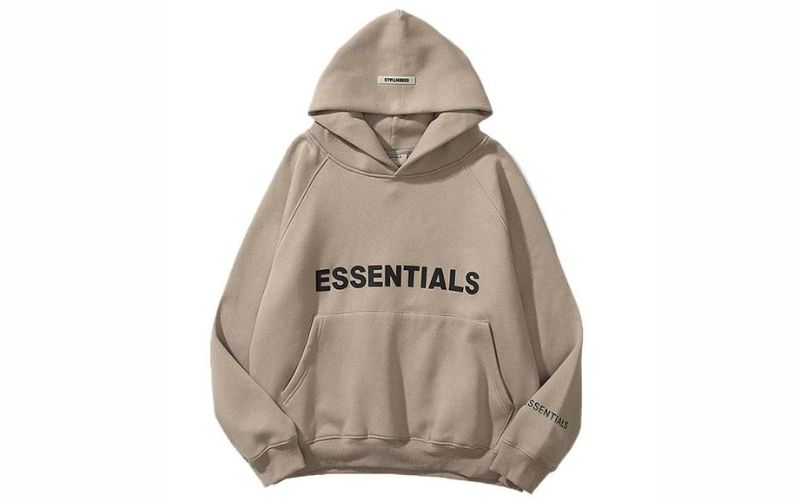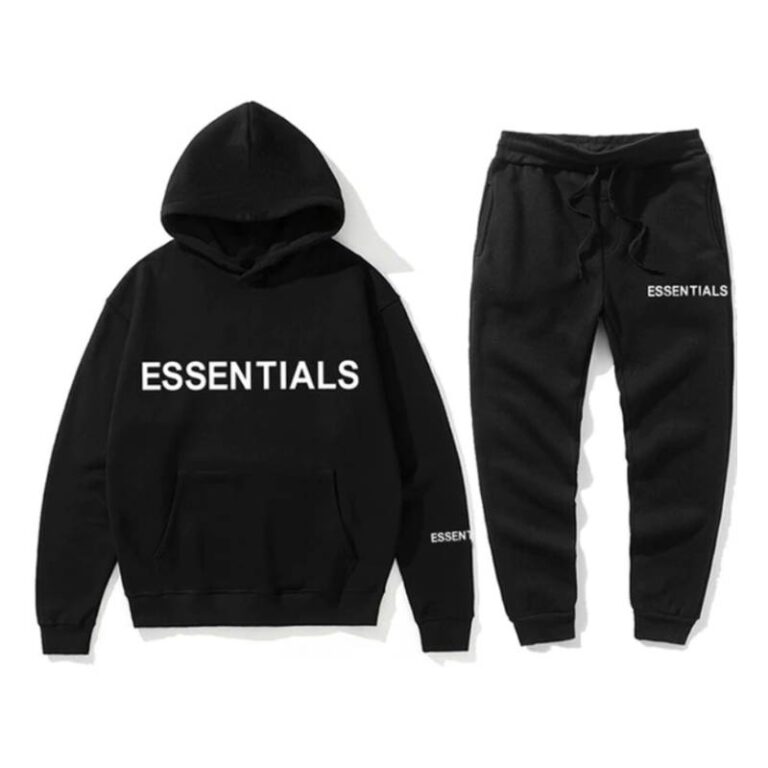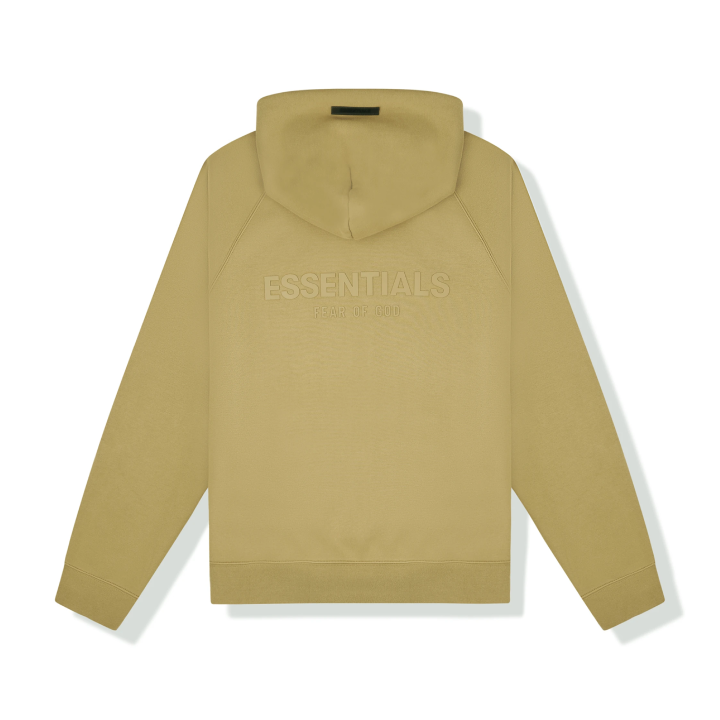Who Makes Essentials Clothing: Exploring The Brands Behind Your Favorite Wardrobe Staples
Essentials clothing has become an integral part of modern wardrobes, providing comfort, style, and affordability to consumers worldwide. Whether you're shopping for basic tees, jeans, or everyday wear, understanding the brands and manufacturers behind these staples can make all the difference in your purchasing decisions. In this article, we'll delve into the world of essentials clothing, uncovering the companies that produce these timeless pieces.
From casual to formal wear, essentials clothing brands cater to a wide range of preferences and budgets. These brands have gained immense popularity due to their focus on quality, affordability, and sustainability. But who exactly makes these clothing items? In this article, we aim to provide a comprehensive overview of the brands and manufacturers driving this industry forward.
As consumers become increasingly aware of the ethical and environmental impact of fashion, it's crucial to know the origins of the clothes we wear. This article will not only introduce you to the key players in the essentials clothing market but also highlight their commitment to ethical practices, innovation, and sustainability. Let's dive in!
Read also:Best Hd Movies 2 Your Ultimate Guide To Highdefinition Cinematic Experiences
Table of Contents
- Introduction to Essentials Clothing
- Top Brands in Essentials Clothing
- Who Are the Key Manufacturers?
- Sustainability in Essentials Clothing
- Ethical Practices in the Industry
- Technological Advancements in Clothing Production
- Market Trends in Essentials Clothing
- Consumer Preferences and Buying Habits
- The Future of Essentials Clothing
- Conclusion and Final Thoughts
Introduction to Essentials Clothing
Essentials clothing refers to the foundational pieces that form the backbone of any wardrobe. These items include basic tees, jeans, underwear, socks, and other everyday wear. The appeal of essentials clothing lies in its simplicity, versatility, and affordability, making it accessible to a broad audience.
Brands that focus on producing essentials clothing have gained significant traction in recent years. This growth can be attributed to changing consumer preferences, with more people prioritizing comfort and practicality in their fashion choices. Understanding who makes essentials clothing is essential for making informed purchasing decisions.
In this section, we'll explore the history of essentials clothing, its evolution over time, and why it remains a popular choice for consumers worldwide.
Top Brands in Essentials Clothing
Brand Spotlight: Uniqlo
Uniqlo is one of the leading names in the essentials clothing market. Known for its "LifeWear" philosophy, Uniqlo focuses on creating high-quality, functional clothing at affordable prices. Their range includes everything from basic tees to premium down jackets, catering to a diverse customer base.
Key features of Uniqlo's offerings include:
- Innovative fabric technology
- Sustainable production practices
- Global accessibility
Brand Spotlight: H&M
H&M is another major player in the essentials clothing industry. With a strong emphasis on fast fashion, H&M offers a wide range of affordable clothing options, including essentials like t-shirts, jeans, and leggings. The brand has also made significant strides in sustainability, launching its Conscious Collection to promote eco-friendly fashion.
Read also:Lisa Boothe In Bikini A Comprehensive Look At Her Journey Style And Influence
Who Are the Key Manufacturers?
Beyond the well-known brands, there are several manufacturers that play a crucial role in producing essentials clothing. These companies often work behind the scenes, supplying garments to both private-label and well-known fashion brands. Some of the key manufacturers in this space include:
- TAL Apparel Limited
- Li & Fung
- VF Corporation
These manufacturers are known for their expertise in mass production, quality control, and supply chain management, ensuring that essentials clothing meets the high standards expected by consumers.
Sustainability in Essentials Clothing
The fashion industry has long been criticized for its environmental impact, but many essentials clothing brands are now prioritizing sustainability. This shift is driven by growing consumer awareness and demand for eco-friendly products. Brands like Patagonia and Eileen Fisher have set the standard for sustainable fashion, using organic materials and ethical manufacturing processes.
Some key sustainability practices in the essentials clothing industry include:
- Use of organic cotton and recycled materials
- Reduction of water and energy consumption
- Implementation of fair labor practices
Ethical Practices in the Industry
Understanding Ethical Fashion
Ethical fashion is a growing movement aimed at improving the social and environmental impact of clothing production. For essentials clothing brands, this means ensuring fair wages, safe working conditions, and transparency in their supply chains. Brands like People Tree and Pact have become synonymous with ethical fashion, setting a benchmark for others to follow.
Challenges in Ethical Production
Despite the progress made, ethical fashion still faces several challenges. Issues such as exploitation of workers, lack of transparency, and high production costs remain barriers to widespread adoption. However, consumer demand for ethical products is driving change, encouraging brands to adopt more responsible practices.
Technological Advancements in Clothing Production
Technology is revolutionizing the essentials clothing industry, enabling brands to produce garments more efficiently and sustainably. Innovations such as 3D printing, digital printing, and smart fabrics are transforming the way clothing is designed and manufactured. These advancements not only reduce waste but also enhance the functionality and durability of essential pieces.
Some notable examples of technological innovation in the industry include:
- Smart fabrics that monitor health and fitness
- 3D printing for custom-fit garments
- Digital printing for reduced water usage
Market Trends in Essentials Clothing
The essentials clothing market is experiencing significant growth, driven by factors such as urbanization, increasing disposable income, and changing consumer preferences. According to a report by Grand View Research, the global apparel market is projected to reach $1.5 trillion by 2025, with essentials clothing playing a major role in this expansion.
Key market trends in the essentials clothing industry include:
- Rise of online shopping and e-commerce platforms
- Growing demand for sustainable and ethical fashion
- Increased focus on customization and personalization
Consumer Preferences and Buying Habits
Changing Consumer Behavior
Today's consumers are more informed and discerning than ever before. They prioritize quality, affordability, and sustainability when making purchasing decisions. This shift in consumer behavior has forced essentials clothing brands to adapt, offering products that align with these values.
Factors Influencing Buying Decisions
Several factors influence consumer preferences in the essentials clothing market. These include:
- Brand reputation and trustworthiness
- Price and value for money
- Sustainability and ethical practices
The Future of Essentials Clothing
As the fashion industry continues to evolve, the future of essentials clothing looks promising. Innovations in technology, increased focus on sustainability, and changing consumer preferences will shape the industry in the years to come. Brands that adapt to these changes and prioritize ethical practices are likely to thrive in this competitive market.
Some potential trends to watch for in the future include:
- Increased adoption of circular fashion models
- Expansion of digital and virtual shopping experiences
- Growth of niche markets catering to specific consumer needs
Conclusion and Final Thoughts
In conclusion, understanding who makes essentials clothing is crucial for making informed purchasing decisions. From well-known brands like Uniqlo and H&M to lesser-known manufacturers, the essentials clothing industry is diverse and dynamic. By prioritizing sustainability, ethical practices, and technological innovation, brands can meet the evolving needs of modern consumers.
We invite you to share your thoughts and experiences with essentials clothing in the comments section below. Additionally, feel free to explore other articles on our website for more insights into the world of fashion and lifestyle. Together, we can shape a more sustainable and ethical future for the fashion industry.


